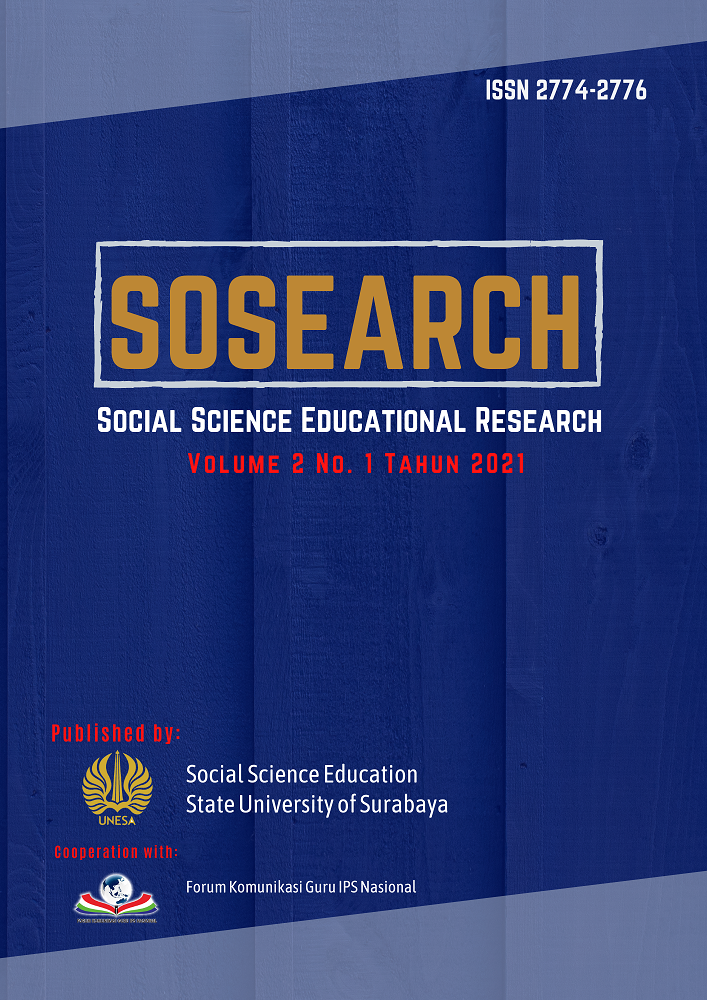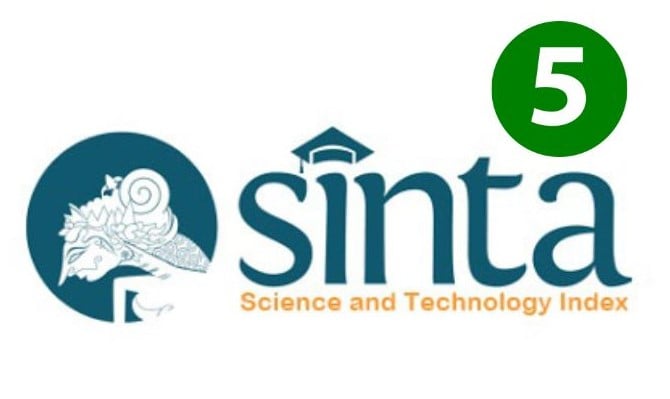Eksistensi Social Behavior Dalam Pembelajaran IPS Sebagai Penguatan Keterampilan Peserta Didik Di Abad-21
DOI:
https://doi.org/10.26740/sosearch.v2n1.p24-30Keywords:
Social Behavior, Students Skills in the 21st Century, Social Studies LearningAbstract
Abstract
This study aims to find ways to grow social behavior in students as part of strengthening in developing social skills in students, especially in the 21st century area. Theen develop attitude of social concern that include emphaty and symphaty between individual students in the social order environment that is in the mindst of the global era, as part of strengtheningthe values and character of students who are embedded through learning social science. This research approach uses of qualitative approach whit the type of metho used in the case study method. Data collection techniques used interviews, observations, documentations studies and data triangulation. The results showed that (1) bullying behavior is a complex problem that has occurd in the school environment for a long time, both in the learning process and outside the learning process; (2) there are two main factors that cause bullying, namely internal factors that come from withnin the individual and external factors aas factors that influence from outside; (3) the efforts of social studies teachers in reducing bullying behaviour among students, especially in the 21st century area through classroom learning that interrelates with lerning matrial and students area given an understanding of the concpt of carring for one another as part of character and cn become social skills as a provision in carrying out the order of life in the educational and social enviroment.
Keywords: Social Behavior, Students Skills in the 21st Century, Social Studies Learning.
Downloads
 Abstract views: 624
,
Abstract views: 624
, PDF Downloads: 805
PDF Downloads: 805




.png)

.png)

.png)
.png)
.png)
.png)
